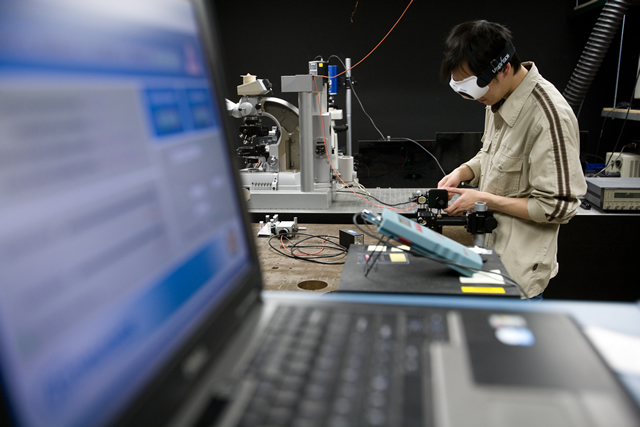
Electrical & Computer Engineering Faculty Publications
Document Type
Article
Publication Date
8-1-2000
Abstract
In wireless cellular communication, it is essential to find effective means for power control of signals received from randomly dispersed users within one cell. Effective power control will heavily impact the system capacity. Distributed power control (DPC) is a natural choice for such purposes, because, unlike centralized power control, DPC does not require extensive computational power. Distributed power control should be able to adjust the power levels of each transmitted signal using only local measurements, so that, in a reasonable time, all users will maintain the desired signal-to-interference ratio. In this paper, we review different approaches for power control, focusing on CDMA systems. We also introduce state-space methods and linear quadratic power control (LQPC) to solve the power-control problem. A simulation environment was developed to compare LQPC with earlier approaches. The results show that LQPC is more effective, and is capable of computing the desired transmission power of each mobile station in fewer iterations, as well as being able to accommodate more users in the system.
Publisher
IEEE
Publication Title
IEEE Antennas and Propagation Magazine
ISSN
1045-9243
Volume
42
Issue
4
First Page
152
Last Page
159
DOI
10.1109/74.868061
Language (ISO)
English
Sponsorship
IEEE
Keywords
Land mobile radio cellular systems, wireless communications, CDMA, power control, reactive power control, centralized power control, distributed power control, linear quadratic control
Recommended Citation
Abdallah, Chaouki T. and Aly El-Osery.
"Distributed power control in CDMA cellular systems."
IEEE Antennas and Propagation Magazine


